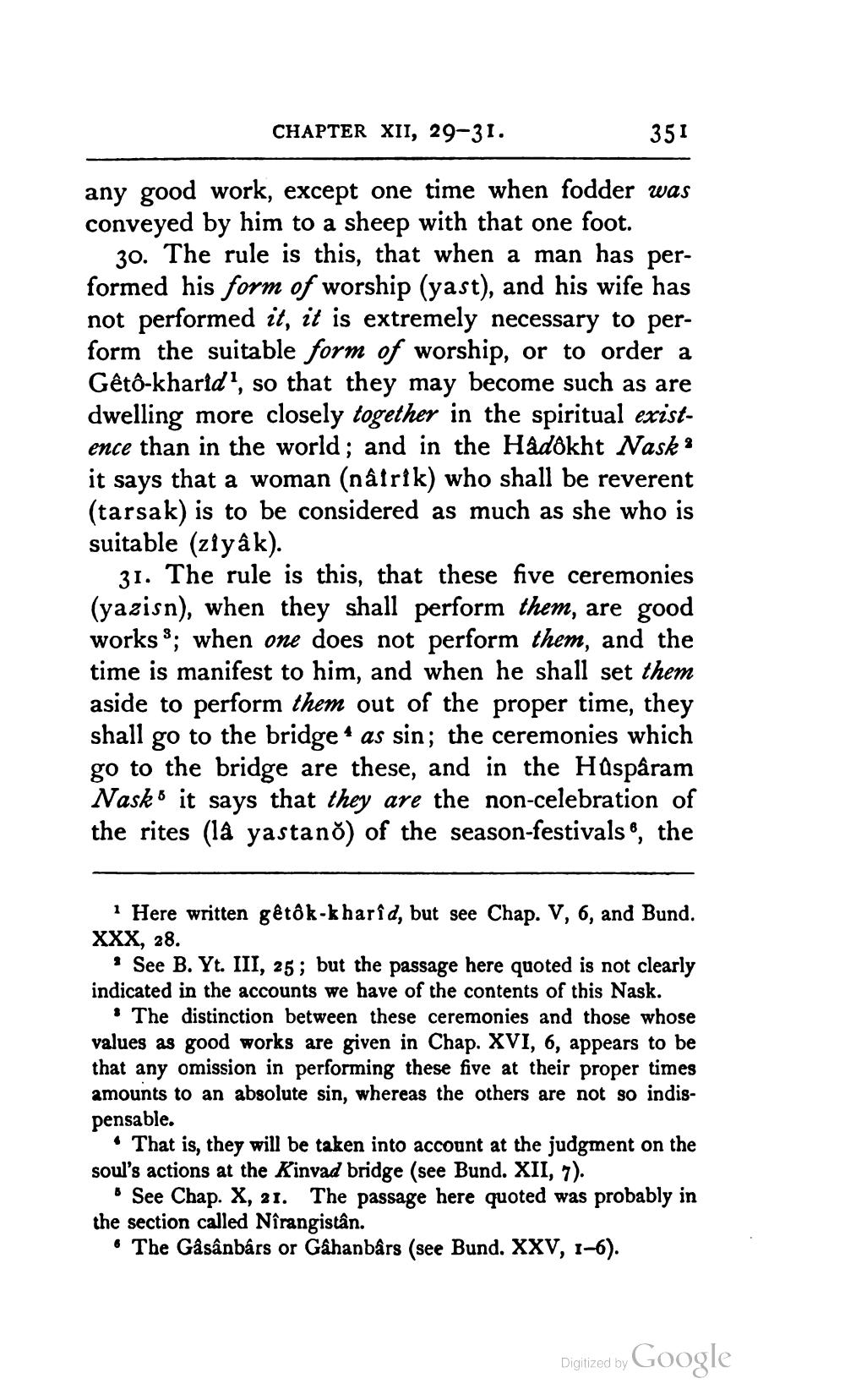________________
CHAPTER XII, 29–31.
351
any good work, except one time when fodder was conveyed by him to a sheep with that one foot.
30. The rule is this, that when a man has performed his form of worship (yast), and his wife has not performed it, it is extremely necessary to perform the suitable form of worship, or to order a Gêtô-kharid', so that they may become such as are dwelling more closely together in the spiritual existence than in the world; and in the Hadókht Nask it says that a woman (nâirik) who shall be reverent (tarsak) is to be considered as much as she who is suitable (ziyâk).
31. The rule is this, that these five ceremonies (yazisn), when they shall perform them, are good works S; when one does not perform them, and the time is manifest to him, and when he shall set them aside to perform them out of the proper time, they shall go to the bridge * as sin; the ceremonies which go to the bridge are these, and in the Huspâram Nasko it says that they are the non-celebration of the rites (la yastano) of the season-festivals, the
Here written gêtôk-kharid, but see Chap. V, 6, and Bund. XXX, 28.
* See B. Yt. III, 25; but the passage here quoted is not clearly indicated in the accounts we have of the contents of this Nask.
• The distinction between these ceremonies and those whose values as good works are given in Chap. XVI, 6, appears to be that any omission in performing these five at their proper times amounts to an absolute sin, whereas the others are not so indis
pensable.
• That is, they will be taken into account at the judgment on the soul's actions at the Kinvad bridge (see Bund. XII, 7).
See Chap. X, 21. The passage here quoted was probably in the section called Nîrangistân.
. The Gåsânbárs or Gahanbârs (see Bund. XXV, 1-6).
Digitized by Google




